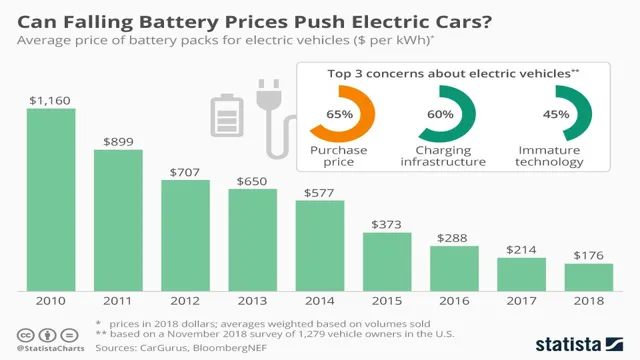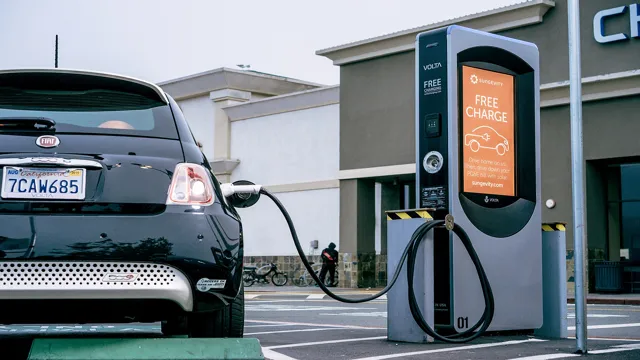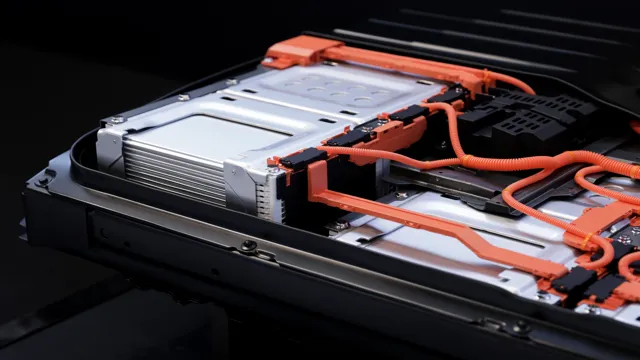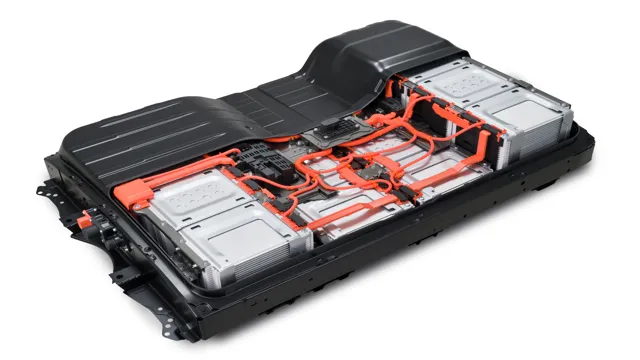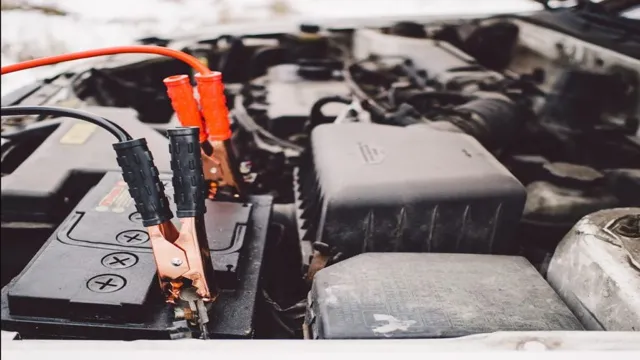New Car Battery But No Electricity: Troubleshooting Tips to Get Your Car Running Again!
When you turn the ignition key, and your car doesn’t start, it can be quite frustrating. The situation can be worse when you realize that the electrical system has failed, and you’re stuck with no power. Most modern cars run on electrical systems that offer several conveniences, such as automatic windows, heated mirrors, and advanced sound systems.
However, when these systems fail, the problems can be significant, and the cause might not be apparent. In this blog, we will explore why your car’s electricity isn’t working and what you can do to diagnose and fix the issue. So, buckle up, and let’s get started!
New Battery, No Power?
You may be feeling stumped when you find yourself in a situation where you’ve just replaced your battery, but the car’s electrical system isn’t responding. You might wonder what could be causing the issue since the new battery should fix everything. Well, don’t lose hope yet.
The problem can be attributed to several things. For starters, it could be an issue with the alternator, which works in conjunction with the battery to power your car’s electronics. If there isn’t sufficient alternator output, the battery won’t be able to charge enough to power the system.
Another possible explanation could be that there is an electrical circuit issue, where there could be an exposed wire or a damaged fuse. An electrical circuit issue can cause the electricity to be sent to the wrong parts of the car or not reach them at all. If you find yourself facing this predicament, take your car to a certified mechanic to diagnose the issue.
Don’t try to repair it yourself. Remember, safety first!
Check Your Alternator
If you’ve recently replaced your car battery but are still experiencing issues starting your vehicle, it might be time to check your alternator. The alternator is responsible for charging your battery while the engine is running, so if it’s not functioning properly, your car will have trouble starting and staying powered. Signs of a faulty alternator include dim headlights, a flickering dashboard, and a battery that constantly needs to be jumped.
It’s important to address these issues as soon as possible, as a malfunctioning alternator can ultimately lead to a dead battery and a stranded car. Don’t let a simple fix turn into a costly problem – have your alternator checked by a professional and ensure your vehicle is running smoothly.
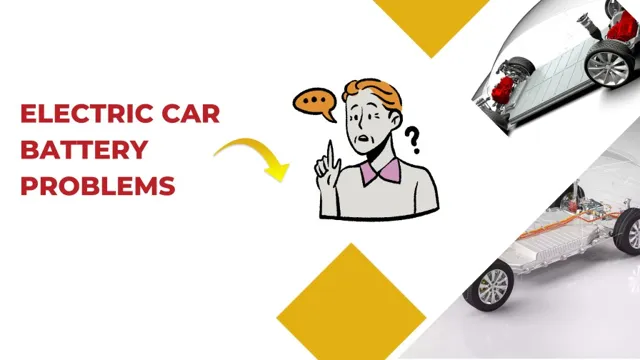
Check Your Fuses
If you recently installed a new battery in your vehicle and you’re not getting any power, it’s important to check your fuses. Fuses are small devices that protect your vehicle’s electrical system from damage by interrupting the flow of electricity if too much current flows through a circuit. If a fuse has blown, it will need to be replaced in order for your vehicle to work properly.
This is a simple process that can be done with just a few tools, but it’s important to know which fuse is responsible for the lack of power before attempting to replace it.
To check your fuses, locate your vehicle’s fuse box. This is typically located under the dashboard, in the engine compartment, or both.Once you have found the fuse box, consult your owner’s manual to locate the specific fuse or fuses that control the affected circuit. Remove the fuse(s) using a pair of pliers or a fuse puller and inspect them for any signs of damage such as a broken filament or discoloration. If you find a blown fuse, replace it with a new one of the same amperage rating and test to see if the power has been restored.
Checking your fuses is a quick and easy way to troubleshoot issues with your vehicle’s electrical system. If you’re still experiencing problems after checking your fuses, it may be time to consult a professional mechanic. Don’t ignore issues with your vehicle’s power system, as they can lead to more serious problems down the line.
Keep your vehicle running smoothly by staying on top of maintenance and addressing any issues as soon as they arise.
Is It a Wiring Issue?
If you’ve recently installed a new battery and your car’s electrical systems are still not working, it could be a wiring issue. Faulty wiring can cause a variety of problems, including problems with the ignition, lighting, and heating and cooling systems. In some cases, you may even experience problems with your car’s engine.
It’s important to take your car to a qualified mechanic if you suspect that you have wiring problems. They will be able to diagnose the issue and determine whether it’s a problem with your battery or your wiring. If it is a wiring issue, they will be able to repair or replace the faulty wiring to get your car back up and running.
Remember, ignoring electrical problems can lead to more serious issues down the road, so it’s important to take care of any problems as soon as possible.
Test Your Connections
If you’re experiencing connection issues with your electronic devices, it might not always be the fault of your internet service provider. Instead, it could be a wiring issue. Before calling your ISP, it’s a good idea to test your connections and figure out where the problem lies.
Start by unplugging your modem and router, then plugging them back in after a few minutes. If that doesn’t work, try connecting your device to a different Ethernet port or using a different Ethernet cable altogether. Sometimes, a loose or damaged cable can cause connection problems.
Additionally, make sure your modem and router are up-to-date with the latest firmware updates to avoid any software-related connection issues. By checking your wiring and connections, you can rule out any unnecessary service calls and quickly fix any connectivity issues yourself.
Look for Damaged Wires
If you’re experiencing issues with your electrical systems or appliances, there’s a chance that the problem is caused by damaged wires. Frayed or damaged wires can cause electrical surges, shorts, and other dangerous problems. Even if the problem seems small, it’s important to have an electrician check the wiring to avoid potential hazards.
Damaged wires can be caused by a variety of factors, including wear and tear, rodents, or contact with sharp objects. It’s important to check your wiring regularly and to call a professional if you notice any potential damage. Ignoring a wiring issue can lead to serious safety hazards, such as electrocution or a fire.
So, next time you’re experiencing electrical problems, make sure to ask yourself: is it a wiring issue? And don’t hesitate to call an expert if you suspect there’s a problem.
Check Your Grounds
Have you ever experienced flickering lights or appliances that won’t work properly? It could be a wiring issue that needs to be addressed. One way to check is to ensure that your grounds are properly connected. The ground is a safety feature that protects you from electrical shocks.
If it’s not connected properly, it could cause electrical issues in your home. Take a moment to go to your circuit breaker and make sure everything is properly grounded. If you notice any loose wires or issues with your grounding, it’s time to call in an electrician.
Ignoring wiring issues can lead to serious safety hazards, so it’s important to address them as soon as possible. Remember, a little maintenance can go a long way in keeping your home safe and secure.
When to Call a Professional
You’ve just got a brand new battery installed in your car, but for some reason, the electricity isn’t working. What could be the problem? Many people assume that the battery is the source of all electrical issues in their car, but that’s not always the case. Electrical problems can stem from a multitude of issues, ranging from blown fuses to faulty wiring.
If you have checked the battery and it’s still not working, it’s best to call in a professional mechanic to take a look. They have the expertise to troubleshoot the issue and locate the root of the problem. Trying to fix electrical issues on your own can be dangerous and can cause further damage to your car.
A professional will have the necessary tools and knowledge to diagnose the issue and make the necessary repairs to get your car back up and running smoothly. Don’t let electrical problems get you down, trust a professional to solve the problem and get you back on the road safely.
DIY Troubleshooting Tips
When it comes to DIY troubleshooting, there are times when you should call a professional. Knowing when to throw in the towel can save you time, money, and frustration in the long run. While you might be able to fix minor issues yourself, more complex problems may require the expertise of a trained technician.
Additionally, attempting to tackle something beyond your skill level could result in further damage or safety hazards. An expert can diagnose the problem quickly and efficiently, and give you peace of mind knowing that the job is done correctly. Remember, sometimes it’s better to swallow your pride and call in a pro than to risk making things worse.
When to Leave It to the Pros
Knowing when to call a professional can save you time, money, and frustration. While some tasks are easy to handle on your own, others require the expertise of someone trained in the field. It’s crucial to learn when to leave it to the pros to avoid making costly mistakes.
For instance, fixing electrical issues should be left to certified electricians, as tampering with it can lead to significant danger. Heavy-duty plumbing jobs, such as fixing a burst pipe, require professional assistance, or you’ll likely make the situation even worse. When it comes to complicated repairs, don’t hesitate to call in a specialist.
A professional has years of experience and the skill to handle the job correctly, ensuring long-term solutions. Knowing when to call in a professional is the ultimate key to a successful outcome.
Conclusion
It’s a shocking revelation, but sometimes a new battery won’t be enough to jumpstart a car’s electrical problems. There could be a plethora of reasons why the electricity isn’t working, from faulty wiring to malfunctioning alternators. So, before you go revving your engine, make sure to bring your ride to a trusted mechanic who can diagnose and fix the issue.
Don’t be left in the dark about the problem – get it fixed and light up the road again!”
FAQs
Why won’t my car start even though I have a new battery?
A new battery may not necessarily solve all electrical problems. The issue could be with the alternator or other components of the electrical system. It is best to have a professional mechanic diagnose and fix the problem.
What are some signs that my alternator may be failing?
Some common signs of a failing alternator include dimming headlights, dashboard warning lights, a slow cranking engine, and a dead battery. These symptoms may worsen over time, so it’s best to have the alternator checked as soon as possible.
Can jumping my car with another vehicle cause damage to my electrical system?
Jumping a car can be a quick fix for a dead battery, but if done improperly it can cause damage to the electrical system. It’s recommended to follow the proper jumping procedure and avoid leaving the cables connected for too long to protect the car’s electrical components.
How often should I have my car’s electrical system inspected?
It’s recommended to have your car’s electrical system inspected at least once a year, or more frequently if you notice any issues. Regular maintenance can help identify potential problems before they become major issues and prevent unexpected breakdowns.
